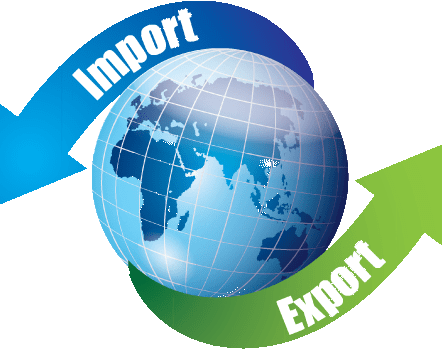In today’s interconnected world, international trade plays a vital role in driving economic growth and fostering global relationships. Businesses across industries are increasingly turning to import/export services to expand their market reach, access new customers, and optimize their supply chains. In this article, we will explore the importance of international trade and delve into the various aspects of import/export services, highlighting their benefits and key considerations.
The Significance of International Trade
International trade has become an integral part of economic development and globalization. It allows countries to specialize in producing goods and services based on their comparative advantages while importing goods that are more efficiently produced elsewhere. This specialization fosters the efficient allocation of resources and encourages innovation, ultimately driving economic growth.
Moreover, international trade promotes cultural exchange and understanding between nations. By engaging in trade, countries establish mutual dependence and build economic ties, leading to enhanced diplomatic relationships and peaceful coexistence.
Understanding Import/Export Services
Import/export services are vital facilitators of international trade. They play a crucial role in connecting businesses across borders and ensuring the seamless flow of goods and services. These services encompass a wide range of activities, including logistics, customs clearance, documentation, and compliance with international trade regulations.
1. Logistics
Effective logistics management is fundamental to import/export operations. It involves the efficient movement of goods from the point of origin to the destination, encompassing transportation, warehousing, and inventory management. Expert import/export service providers employ advanced technology and strategic partnerships to optimize logistics, minimizing costs and transit times for businesses.
2. Customs Clearance
Navigating customs procedures and regulations is one of the most challenging aspects of international trade. Import/export service providers possess in-depth knowledge and experience in customs clearance processes, ensuring compliance with applicable laws, regulations, and tariffs. They facilitate smooth entry or exit of goods, handle duties, and manage documentation, saving businesses valuable time and minimizing potential disruptions.
3. Documentation and Compliance
Documentation plays a crucial role in international trade, serving as evidence of the transaction, adherence to regulations, and ownership of goods. Import/export service providers assist businesses in preparing and processing the necessary documents, such as commercial invoices, packing lists, certificates of origin, and bills of lading. They ensure compliance with international standards and regulations, mitigating the risk of delays, penalties, or loss of goods.
4. Trade Regulations and Market Research
Staying informed about trade regulations, market dynamics, and business opportunities is essential for any company involved in international trade. Professional import/export service providers help businesses navigate regulatory complexities by offering market research, trade data analysis, and guidance on tariff classifications. This expertise empowers businesses to make informed decisions, seize new market opportunities, and avoid potential pitfalls.
The Benefits of Import/Export Services
Engaging import/export services yields numerous benefits for businesses looking to expand globally. Let’s explore some of the key advantages:
1. Global Market Expansion
Import/export services enable businesses to access larger international markets that may have substantial customer demand for their products or services. This expansion helps diversify revenue streams and reduce dependency on a single market, mitigating risks associated with economic fluctuations or regional uncertainties.
2. Cost Optimization
Partnering with import/export service providers can help businesses optimize costs along the supply chain. These professionals leverage economies of scale, negotiate favorable logistics contracts, and navigate customs procedures efficiently. By reducing transportation costs, handling fees, and minimizing customs delays, businesses can enhance their competitiveness and profitability.
3. Enhanced Supply Chain Efficiency
Import/export services contribute to streamlining supply chains, leading to improved efficiency and reduced lead times. Service providers coordinate with suppliers, carriers, and customs authorities, ensuring timely delivery and minimizing disruptions. This efficiency enables businesses to meet customer demands promptly, build stronger relationships, and gain a competitive edge in the market.
4. Professional Expertise
Utilizing import/export services allows businesses to tap into the specialized knowledge and experience of professionals in the field. These experts stay up-to-date with the ever-changing global trade landscape, providing valuable insights, recommendations, and ensuring compliance with regulations. By leveraging their expertise, businesses can navigate complex international trade scenarios with confidence.
Conclusion
International trade and import/export services are essential drivers of economic growth and global interconnectedness. By effectively utilizing these services, businesses can expand their reach, optimize their supply chains, and tap into new market opportunities. Whether it is logistics, customs clearance, documentation, or compliance, professional import/export service providers offer a breadth of expertise, saving businesses time, ensuring compliance, and boosting competitiveness in the international marketplace.




